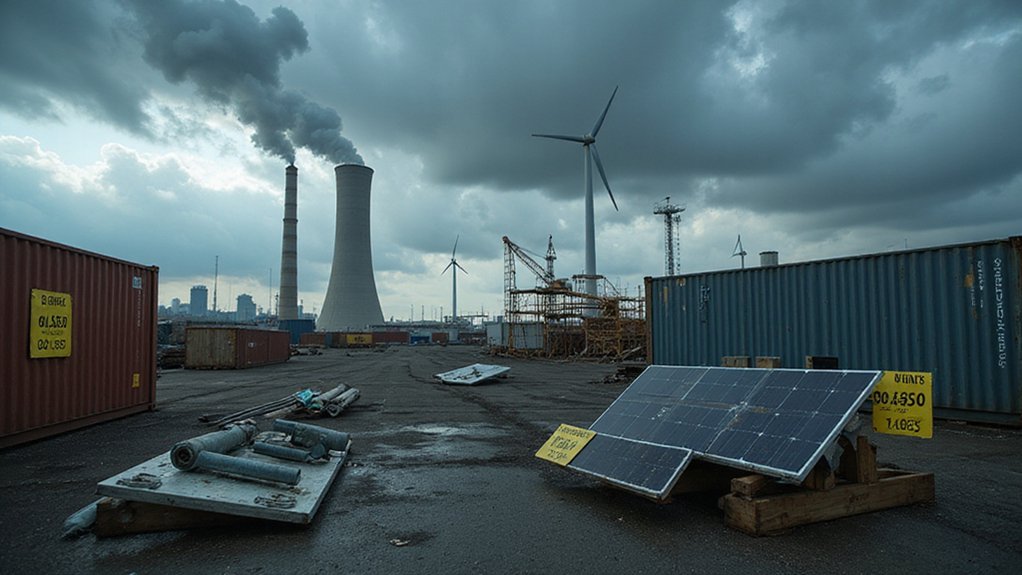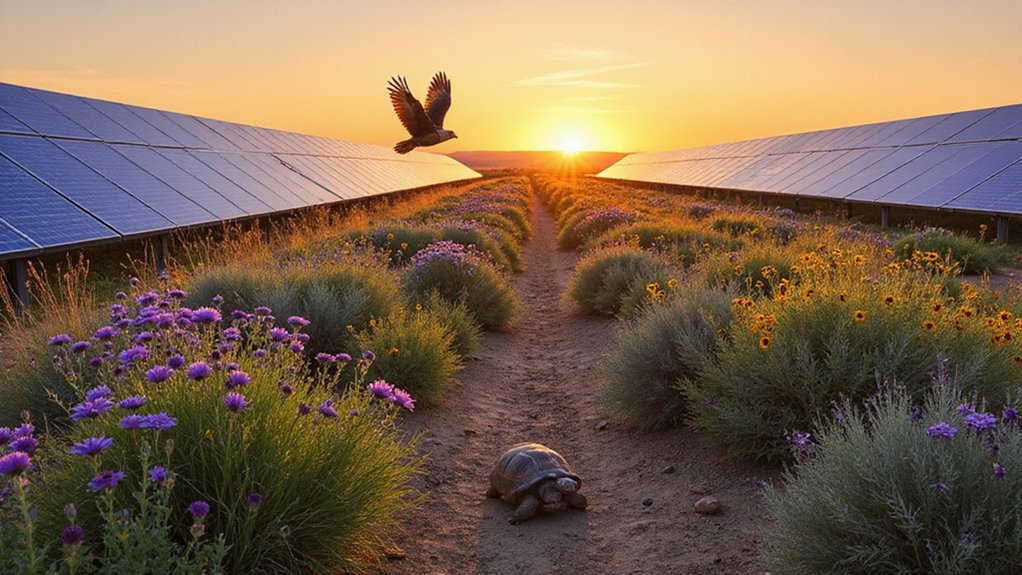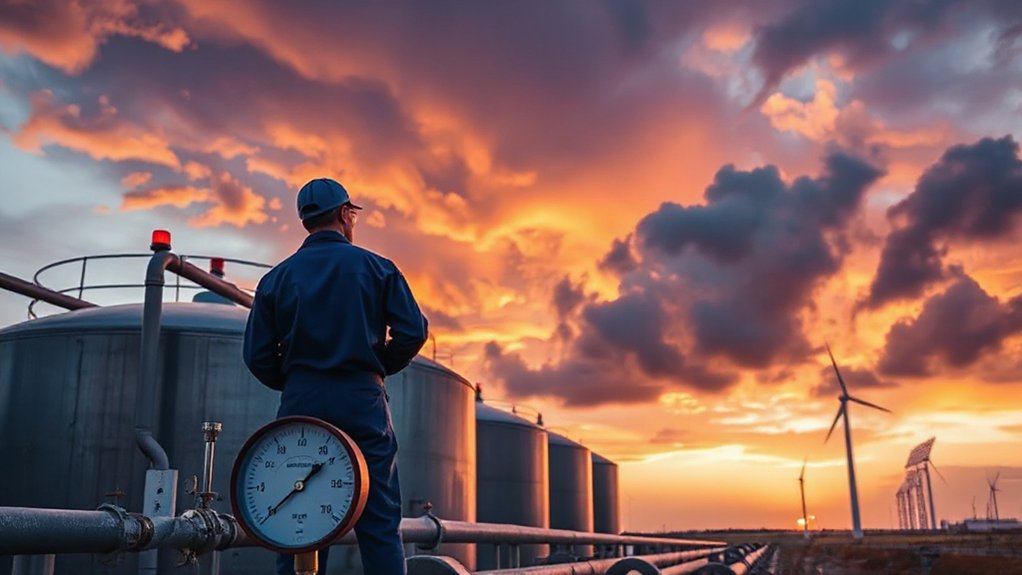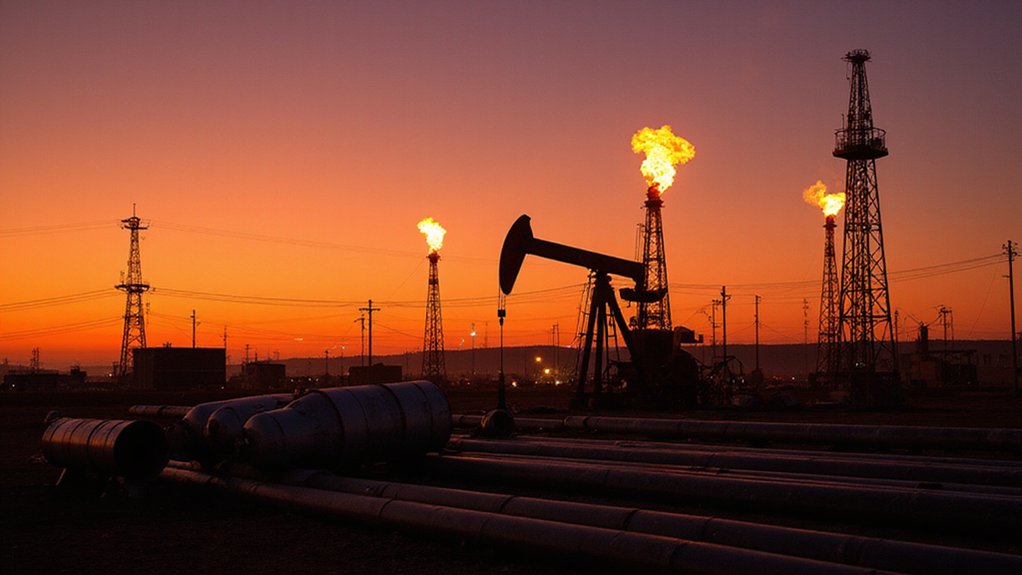Trump’s tariffs are having unexpected climate consequences. The 25% duties on steel, aluminum, and clean tech components have driven solar panel imports down considerably. Prices for renewable energy infrastructure are rising, with solar cells up 20% and mounting systems up 18%. These increases weaken renewable energy’s competitiveness against fossil fuels. American households face nearly $1,300 in additional costs by 2025. The full environmental impact extends far beyond these immediate economic effects.
Storm clouds are gathering over America’s climate progress as President Trump’s tariffs threaten to upend years of renewable energy momentum. Introduced in March 2025 on what Trump called “Liberation Day,” the new 25% duties on steel, aluminum, and clean tech components are creating ripple effects throughout the green energy sector.
The tariffs target imports from China, Mexico, Canada, and the European Union. They’re already causing price hikes across the renewable energy supply chain. Solar panel imports have plummeted dramatically, with shipments from Vietnam down 66.2% and Malaysia down 80.5%. Essential components like solar cells have jumped 20% in price.
These trade barriers come as the Trump administration walks back U.S. climate commitments. Plans to withdraw from the Paris Agreement again and threats to cut Inflation Reduction Act support undermine both domestic and international climate cooperation. The rhetoric echoes Trump’s failed promises to revive the coal industry, which saw production decline by 34% during his previous administration despite his assurances.
America’s climate leadership faces an existential threat as global agreements crumble and domestic clean energy investments hang in the balance.
For American families, the economic impact is direct. Tariffs amount to an average tax increase of nearly $1,300 per household in 2025. The broader economy will feel it too, with projections showing a 0.64% reduction in U.S. GDP. The escalating trade tensions could trigger a US recession that would further limit available resources for climate initiatives.
The electric vehicle market faces particular challenges. With a proposed 100% tariff on imported vehicles, EVs could become less affordable just as adoption was gaining momentum. Currently, imported EVs make up about 30% of the U.S. market.
Clean energy infrastructure costs are climbing. Steel mounting systems for renewable projects have risen 18%, while aluminum components are up 25%. These increases make renewable energy less economically competitive against fossil fuels.
The global impact extends beyond America’s borders. Disrupted supply chains for clean technologies affect climate action worldwide. Trade tensions with China limit U.S. access to critical minerals needed for the clean energy shift.
As these policies unfold, experts worry that years of progress toward a cleaner energy future might be reversed, leaving both economic and environmental damage in their wake. The projected increase of 750 million tons of CO2 emissions due to tariff-related clean tech slowdown threatens to derail critical climate goals.
References
- https://www.carbonbrief.org/experts-what-do-trumps-tariffs-mean-for-global-climate-action/
- https://www.winssolutions.org/impact-2025-us-tariffs-on-sustainability/
- https://taxfoundation.org/research/all/federal/trump-tariffs-trade-war/
- https://altruistiq.com/state-of-sustainability/resource/the-environmental-price-tag-of-trumps-tariffs
- https://www.lse.ac.uk/granthaminstitute/news/if-elected-donald-trumps-proposed-tariffs-would-damage-the-economies-of-united-states-china-and-europe-and-set-back-climate-action/









